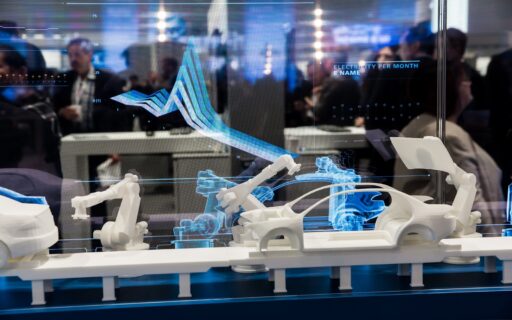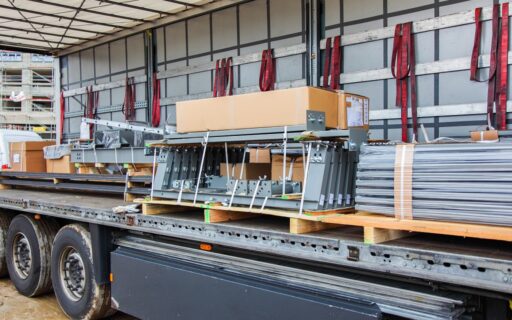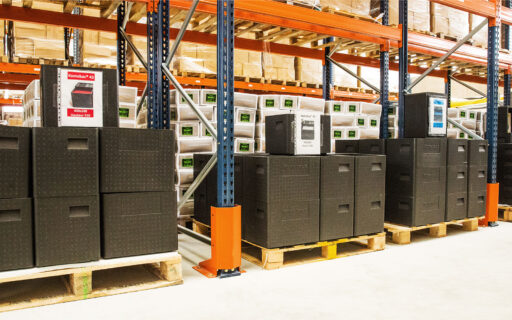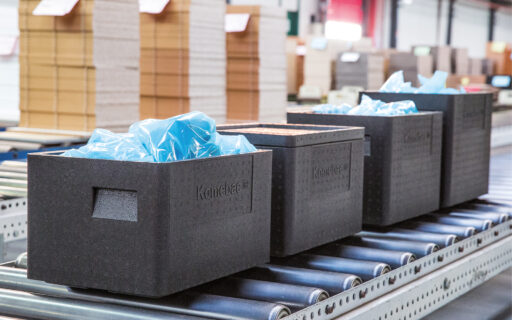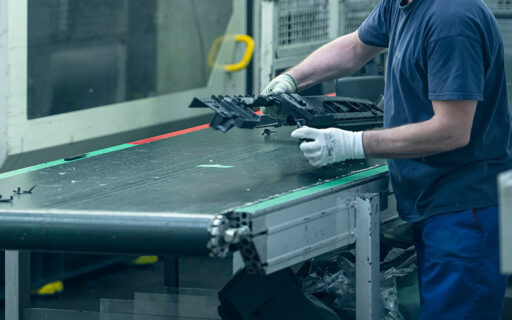Knauf Automotive
Supply Chain
Logistics in the automotive industry – effective solutions and innovations
Logistics in the automotive industry plays a crucial role in ensuring the smooth operation of the entire production and delivery process of vehicles and auto parts. A highly developed logistics network makes it possible to coordinate the delivery of raw materials, components and finished products on time, which has a huge impact on the efficiency, cost and competitiveness of automotive companies. In the dynamically changing environment of the automotive industry, logistics is becoming one of the key elements of supply chain management, enabling simultaneous quality improvement and process optimization.
Latest articles
Supply Chain
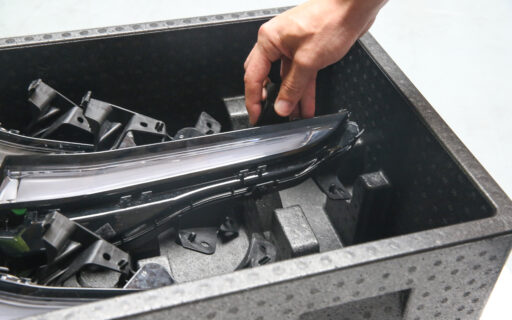
Custom plastic containers – technology, properties and applications for the automotive industry
See more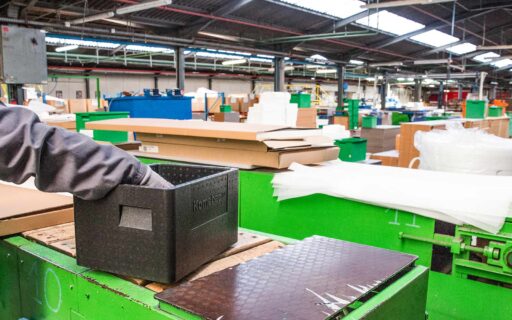
Packaging in logistics and packaging management. What do you need to know about optimization of the logistics in a production company?
See moreLogistics in the automotive industry is mainly based on the uninterrupted supply of necessary components to production lines. Effective cooperation between the customer and the logistics operator is essential to ensure the smooth operation of the business. Lean supply chain, reverse logistics, blockchain and other innovations in the logistics world are new solutions for cutting-edge companies in the automotive sector. These more efficient supply chain management methods also offer considerable help. What should logistics for the automotive industry look like so that automotive processes can meet all the challenges?
The biggest logistics challenges for automotive manufacturers
In many plants, car production starts only after the dealer receives an order for a specific model. It is the end customer who chooses the equipment variant, the gearbox, the power unit, and much more – under such conditions, standardizing production is quite a difficult task. Adapting to these challenges requires, first and foremost, eliminating any delays associated with the supply chain. Sometimes one assembly line produces several models, requiring well thought-out logistics and efficient management of the entire production schedule. The key issues here are: on-time deliveries, compliance with technical parameters, meeting the requirements of automotive standards and ensuring product availability.
See more: Supplier selection criteria in the automotive industry
Innovative logistics solutions – blockchain in the automotive industry
Blockchain is an innovative technology designed to manage business transactions that is already being used in many fields. The most well-known blockchain-based solutions include cryptocurrencies, but finance is not the only area where this technology is being used. The system is based on interconnected blocks that correspond to specific transactions or records. The whole forms a kind of chain that enables the maintenance of a common, unified and inviolable digital ledger.
What role does blockchain play in automotive logistics?
It is a technology that is of great importance to many manufacturers in this sector. First of all, it is a way to provide all participants in the process with verified, complete and unmodified information about individual products. As a result, it is possible to fully control the supply chain, verify the source of materials and the history of extraction and transport. Logistics in the automotive industry thus gains transparency, and fast and precise quality control of spare parts becomes simpler. This in turn leads to less time and money spent on verification and transfer of information, resulting in increased efficiency of the supply chain and production itself at every stage.
Blockchain in logistics – applications
One of the largest blockchain projects for the automotive industry to date is XCEED, which is the result of a collaboration between companies such as Renault, IBM and Knauf Industries. Through its use, it is possible to quickly and accurately trace the entire supply chain in more than a dozen factories in Europe that source parts from dozens of other companies. Its implementation eliminates the need for long and complicated audits, which continuously maintains the highest production standards while increasing efficiency.
Optimizing manufacturing processes with a lean supply chain
When discussing innovative solutions for the automotive industry, one cannot forget about Lean Supply Chain Management. It is a management method based on the following principles:
- elimination of any losses occurring at each stage of production,
- speed of implementation,
- flexibility in implementation of new solutions.
This approach helps to effectively meet the demands of the rapidly changing automotive market. Lean supply chain model enables companies to reduce unnecessary processes, which means that more attention can be paid to the most critical ones. In the context of logistics as such, Lean SCM helps to cope with problems such as overproduction or shortages in supplies, supporting effective logistics network management.
See more: How to implement key lean manufacturing methods?
Reverse logistics. Production cost optimization in the automotive industry
Reverse logistics is based on changing the direction of the flow of materials – after covering the route to the end customer, they should return to the manufacturer. This approach is a step towards protecting the environment, reducing waste and optimizing costs. In the case of the automotive industry, reverse logistics is applied mainly through the use of reusable packaging.
Reusable transport packaging
A great example of such a solution are the reusable transport packaging we produce. The packaging is made of expanded polypropylene, which is an extremely lightweight material, but at the same time very durable. Our transport containers are universal products that can be used by almost any manufacturing company.
Cost optimization involves, among other things, the search for trusted cooperation partners as well as the implementation of efficient production methods for individual components. This includes, for example, injection molding; logistics in the automotive industry are also of considerable importance, especially in the context of using reusable components. Such optimization should be carried out gradually – starting with the smallest simplifications up to the implementation of innovative systems that eliminate overproduction and shorten lead times. The most effective solutions of this type include blockchain, Lean SCM and reverse logistics.
See more: Custom plastic containers – technology, properties and applications for the automotive industry


